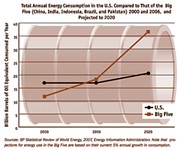A Boy Named Sue
Jim Bob Keeps Up the Fight
By Robert Bryce, Fri., Feb. 20, 1998
|
|
In 1992, Jim Bob Moffetttold a local TV reporter than he was going to "bankrupt the city" with lawsuits if he didn't get his way. Well, the chairman and CEO of New Orleans-based Freeport-McMoRan Copper & Gold won't put Austin in receivership any time soon, but Freeport's legal and lobby tactics have cost city and county residents a lot of time, aggravation and money. While exact figures are not readily available, City Attorney Andy Martin estimates that the city has spent about $1.5 million on litigation directly related to Freeport. And that figure is going to rise substantially over the next year or so. "That figure is probably conservative," Martin says. "That could buy a lot of playscapes."
Last month, the city sued to overturn SB 1017, a law written by Sen. Jeff Wentworth (R-San Antonio) that passed the Texas Legislature in 1995. The bill, which the city refers to in its court pleadings as the "FM Properties Water Quality Zone Bill" was written specifically to allow Moffett's local real estate company to escape the city's water quality protection measures. If the litigation over SB 1017 is anything like the litigation that FM Properties Operating Co. (FMP) is sponsoring on other fronts, it is sure to drag on for years to come.
Moffett calls the shots at FMP and every other entity in the Freeport empire, which now consists of 10 separate publicly traded entities. Moffett, whose name adorns the new microbiology building on UT's Forty Acres, has consistently refused requests for comment from The Austin Chronicle. His spokesmen similarly refuse to answer any questions relating to the company's operations in Austin and Indonesia. Messages left last Friday for Freeport spokesmen Bill Collier and Garland Robinette were not returned.
Moffett is a major player in the lawsuit challenging SB 1017 because FMP is the largest landowner among the 27 defendants named in the city's lawsuit. Moffett has been a player in Austin real estate ever since the late 1980s, when Freeport bought 4,000 acres of real estate on Barton Creek. Moffett's hard-charging style has led to his involvement in a web of litigation that directly affects the City of Austin and local taxing jurisdictions. Here's a rundown of those cases:
Quick et al v. City of Austin. This lawsuit, the longest running battle between the city and Freeport, was filed in 1992 by small landowners ostensibly hurt by the Save Our Springs Ordinance. But the named plaintiffs, Jerry Quick and John Bryant, have long since disappeared from the scene, and the suit is clearly being pushed by Freeport. Quick and Bryant did not bother to hear the arguments in their lawsuit when it went before the Texas Supreme Court. About a dozen representatives from Freeport, however, did attend. FMP wants the ordinance overturned because it hopes the courts will limit Austin's ability to impose strict water quality mandates. If the Supreme Court rules that Austin overstepped its legal authority by imposing water quality laws that were too strict, then Freeport and other land developers will be able to build under less stringent guidelines than those imposed by S.O.S. Freeport's local lawyer, Roy Minton, was victorious in the first stage of the case. In 1994, he won a jury verdict in a Hays County courtroom. But that verdict was overturned by the Third Circuit Court of Appeals. When oral arguments were heard at the Texas Supreme Court last November, Minton once again laid on his patented cornpone polish, but the city has a strong case, and Attorney General Dan Morales, acting on behalf of the Texas Natural Resource Conservation Commission, has filed an amicus curiae brief in support of Austin's position. No decision is expected for several weeks.
FM Properties v. Travis Central Appraisal District. In 1993, FMP sued the Appraisal District (TCAD), the entity which appraises property for a variety of local taxing jurisdictions including the Austin Independent School District, City of Austin, and Travis County, claiming that TCAD had improperly appraised the tracts it owns - that FMP should have been given, in effect, a volume discount because it owns multiple home sites. TCAD disagreed, arguing the law Freeport was relying on, which was passed in the mid-1980s by the Texas Legislature, was unconstitutional. "Our argument was that the tax code required us to value identical properties unequally," explains TCAD chief appraiser Art Cory. TCAD appealed the case all the way to the Texas Supreme Court. But on Dec. 4, the high court refused to hear the case. So in addition to the $27,000 TCAD paid to fight Freeport's lawsuit, Travis County and the other taxing jurisdictions affected by the ruling will have to refund tens of thousands of dollars to Freeport. Dick Senn of the Travis County Tax Collector's office said that figuring out the final refunds from all nine taxing jurisdictions affected by the litigation will take several more weeks, but he estimated the county alone will have to refund about $30,000 to Freeport.
The ruling gives large landowners and developers a substantial tax advantage over small landowners. And the ruling will have an effect on taxing jurisdictions throughout the state. Cory says that under it, Freeport is allowed to pay taxes based on the "wholesale value of their property and everyone else is paying on the retail value. That didn't seem right to us."
City of Austin v. Southwest Travis County Water District. In 1995, the Texas Legislature passed a bill known as HB 3193, which exempted about 8,000 acres in southwestern Travis County from the City of Austin's water quality laws, and preempted the city's ability to annex the area, which includes four municipal utility districts at the Circle C development. A large percentage of that acreage is controlled by FMP. In August, Travis County Judge Scott McCown ruled that HB 3193, which was written by former state rep Robert Saunders (D-La Grange), who is now a lobbyist, was unconstitutional on three different grounds. The most important was that the bill violated the Texas Constitution's prohibition on special legislation. In an Aug. 26 letter, McCown wrote that the water quality district authorized by the bill was created to "remove the area" covered by the district "from the regulatory jurisdiction of the City." McCown continued, "If laws can be passed to favor particular people or disadvantage particular localities, then - as the constitutional framers knew too well - private interest will prevail over the public interest." Lawyers for the water district are appealing McCown's decision to the Third Circuit Court of Appeals. In a lawsuit directly related to the outcome of 3193, on December 19, Circle C Land Corp., the local subsidiary of FM Properties, sued the city for $23 million the company says the city owes it due to Austin's annexation plan for Circle C.
City of Austin v. Horse Thief Hollow Ranch et al. The city filed this suit on January 9 because SB 1017, like HB 3193, clearly targets the City of Austin. And given the city's clear win on the challenge to HB 3193, the city would have been foolish not to press forward.
Passed by the Lege about the same time as HB 3193, SB 1017 allows Freeport and other large landowners to create special zones that exempt them from the city's water quality and pollution prevention laws. In their court pleadings, the city argues the law gives "special legislative privileges to owners and developers of large tracts in the Austin area." And the city argues that the law is "an unconstitutional delegation of unbridled legislative authority to private interests to suspend, limit or eliminate the powers regulations and ordinances of a Home Rule City," which the city says violates the Texas Constitution.
"Freeport has the biggest investment in water quality protection zones," says attorney Mike McKetta, who was one of the original plaintiffs' attorneys on the Quick case. McKetta currently represents Austinite Mitchel Wong, who is a named defendant in the Horse Thief Hollow case. McKetta says that in this latest bit of water quality litigation, "Everyone's hopeful that Freeport will take the lead role."
No hearings have been set in the case, nor is it known how much it will cost the city to litigate it. However, Tommy Jacks, one of three Austin lawyers who has been hired by the city to litigate the case, says he has agreed to bill the city $350 per hour for his work.
Be Mine
Although the company was not mentioned by name, Freeport-McMoRan Copper & Gold's activities in Irian Jaya, Indonesia were mentioned in a U.S. State Dept. report on human rights as the cause of ongoing friction between indigenous people in and around Freeport's copper and gold mine. The State Department report, released Jan. 31, said the "anticipated distribution of funds from a foreign mining company created tensions that helped lead to a clash between tribal groups and security forces in August in the Timika-Tembagapura area, which led to the shooting deaths of two Irianese and injuries to security forces." For the full report on human rights in Indonesia, go to: http://www.state.gov/www/global/human_rights/1997_hrp_report/indonesi.html
Conservancy on Top Again
The Nature Conservancy is still the biggest Green on the block when it comes to fundraising. According to recently published figures in the Chronicle of Philanthropy, the Conservancy raised $204 million in 1996, a slight drop from the $210 million the group raised in 1995. The Conservancy has also been making changes in its Austin operations. Jim Fries, who for many years headed up the local office, has left the Conservancy. In addition, the group is setting up the Barton Creek Habitat Preserve on what is known as the Uplands tract. According to sources close to the matter, the Conservancy plans to make the Barton Creek location a centerpiece of its fund-raising efforts in Texas. Here's the full list of the top environmental groups, in terms of money raised in 1996:
Nature Conservancy, $204 million;
Ducks Unlimited, $50 million;
World Wildlife Fund, $48 million;
Trust for Public Land, $38 million;
Natural Resources Defense Council, $23 million;
Environmental Defense Fund, $23 million;
National Audubon Society, $21 million;
National Wildlife Federation, $21 million;
Wildlife Conservation Society, $20 million.
Got something to say on the subject? Send a letter to the editor.









